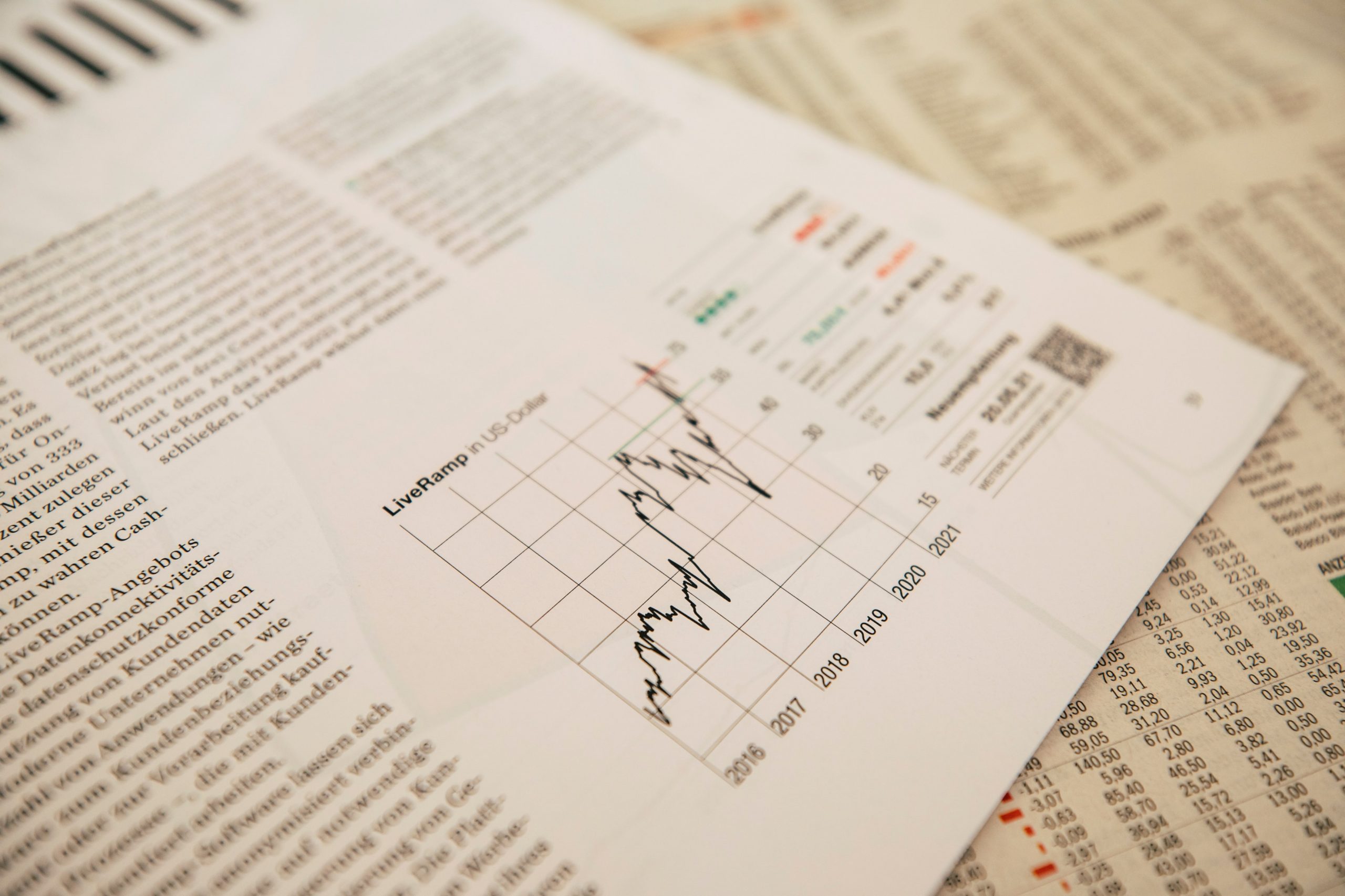How does a recession affect the stock market?
You may assume that during an economic downturn, the stock market is the last place you want your money. But is there any truth to this, or is there still potential to make a profit during recessions? With the right mindset and careful planning, you can come out of a recession better than you started. Sounds too good to be true? It’s not!
You just need to be aware of what investments make sense during recessions and which you need to stay away from. We’ll cover everything you need to know in this article. You’ll learn what constitutes as a “recession” and if one is approaching. Then, we’ll explain what you can expect to happen to the stock market during a recession – and what this means for investors like you.
Towards the end, we’ll share our keys to success for investing during economic downturns. Read all the way through as we’ll let you in on our secret for earning returns while everyone else is floundering!
What Constitutes A Recession?
Most people think of a recession as two consecutive quarters of negative economic growth. However, this is technically only a part of the definition. A recession is actually defined as “a significant decline in activity across the economy, lasting longer than a few months.”
This means that while GDP may not have declined for two quarters yet, other key indicators can point to an oncoming recession. For instance, if unemployment starts to rise or consumer confidence dips below certain levels, this could be a sign that a recession is coming.
Of course, it’s not always easy to spot these signs. This brings us to our next point…
You May Not You’re In A Recession Until It’s Too Late (Without The Right Tools)
While many investors believe you cannot time the market, that sentiment is only partially true. On your own, without the right tools, predicting a recession will be difficult. However, the VectorVest track record speaks for itself. With our software, you’ll be in the know when the tides are turning as we provide insights into the overall market sentiment. We’ll talk more about how you can time the market with our product later on.
Without the right tools in your arsenal, predicting a recession is tough – you won’t know it’s here until it’s already too late. The stock market will have already descended on its downward trajectory and you’ll have missed your chance to sell at high prices.
So what can you do? The best thing you can do is be prepared ahead of time and have a plan for how you’re going to weather the storm. And if you are looking to stay ahead of the curve and time the market, there is really only one way to do so – and that is with a reliable, tried and true stock forecasting software – we’ll talk about this later on.
So, How Does A Recession Affect The Stock Market?
Now comes the big question – how does a recession affect the stock market?
During a recession, you can expect stock prices to fall across the board. This happens for a number of reasons. For one, as we mentioned before, consumer confidence plummets during economic downturns. People are less likely to spend money – which means businesses make less profit. This is something you can see for yourself in the VectorVest stock forecasting software – you can easily get an idea of what the overall market sentiment is. This tells you how other investors are behaving at any given time.
In addition, during a recession companies are often forced to lay off workers and cut their payroll along with other costs. This includes cutting back on research and development – which can hurt long-term growth prospects. All of these factors combine to create an environment where stock prices are more likely to go down than up – at least, for the time being.
Of course, there are exceptions to every rule. While the stock market will generally decline during a recession, there are always going to be some companies that perform well. This is why it’s so important to have a diversified portfolio – because even if some of your stocks are taking a hit, others may be doing just fine.
What To Expect When Investing In A Recession
First of all, you may need to shift your goals to help you maintain realistic expectations. Maybe at the peak of the economic cycle you were earning 20-30% returns every month. Well, during a recession – maybe your goal changes to 10% returns every month. Just don’t expect to make a lot of money right away. It takes time for companies to adjust to new economic conditions – so stock prices will likely stay down for a while even after the recession ends. If you can just remain patient, you’ll be rewarded in the long run.
Second, don’t get discouraged if your portfolio loses value during a recession. It’s normal for stock prices to go down during an economic downturn. The important thing is to hold on to your stocks and wait for the market to recover. Remember that recessions don’t last forever. The economy will eventually recover and start growing again. If you can weather the tough times, you’ll be in a good position to take advantage of the rebound when it comes.
Now – with all this said, where should you turn your attention as a stock market investor in these uncertain times? There are a few types of stocks that tend to perform better than others during recessions – let’s explain.
Recession-Proof Your Portfolio: Invest In These Stocks
While your portfolio may have consisted largely of emerging brands and tech companies prior to the recession, you’ll want to shift your strategy to stay profitable. Stick with consumer staples stocks. These are companies that make essential goods that people need to buy no matter what the economy is doing. For example, food and beverage companies, healthcare companies, and personal care products companies.
You can also fill your portfolio with utility stocks. These are businesses that provide necessary services like water, electricity, and gas. People may not be rushing out to buy the latest iPhone during a recession – but they still need to pay their utility bills. You can expect these companies to remain reliable even through the toughest of times.
There are also some caveats worth noting. While a company may not necessarily be a staple or utility, it may thrive even in a recession. These are cash-rich stocks. Companies with ample cash on hand have a cushion during tough times and are less likely to go bankrupt during a recession.
Finally, we have dividend stocks. These are companies that pay out regular dividends to shareholders. Dividend stocks can provide a steady income stream during a recession – which can be helpful if you’re trying to weather a tough economic period. If you want to learn more about how to invest in a recession, take a look at our complete guide.
Final Thoughts On How a Recession Affects The Stock Market
A recession can be a tough time for investors. But if you know how to build a recession-proof portfolio and how to weather the tough times, you can still make money in the stock market. So don’t be afraid of investing during a recession – especially when you have the ability to time the market.
We know what you’re thinking – time the market? Didn’t we say that’s impossible? Well, sort of. Investors are rarely able to predict when a recession will hit and when it will end. However, the VectorVest stock forecasting software has a track record that speaks for itself. We’ve accurately called every major market move for 30 years and counting. Don’t just take our word for it – see for yourself how we’ve been on the cutting edge of market timing here.
Armed with this information, you’ll be able to stay on the cutting edge of investing. During recessions or economic peaks, you’ll gain insights into the overall market conditions along with clear buy, sell, or hold recommendations for any given stock. Want to see how it works? You can try it risk-free for 30 days. Or, get a free stock analysis and learn how our stock analysis is unlike anything else. You’ll never look at investing the same again!








Leave A Comment